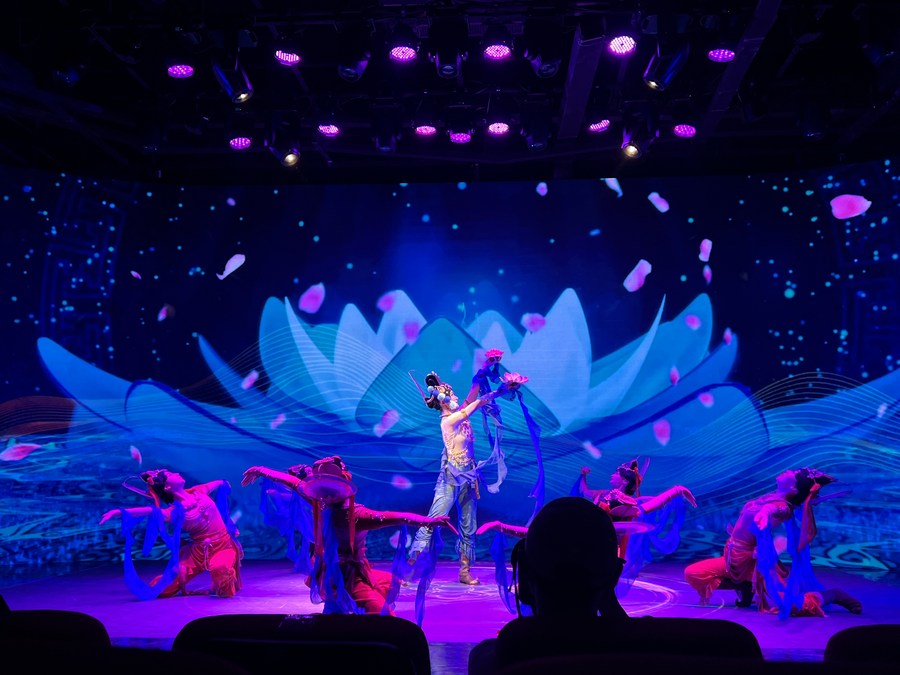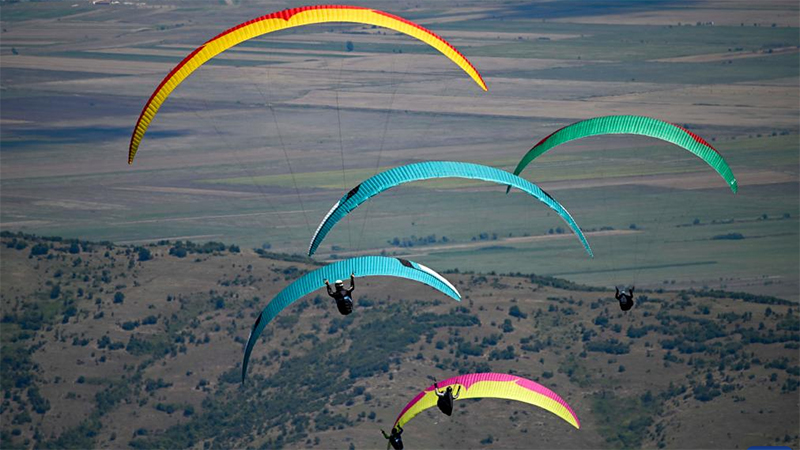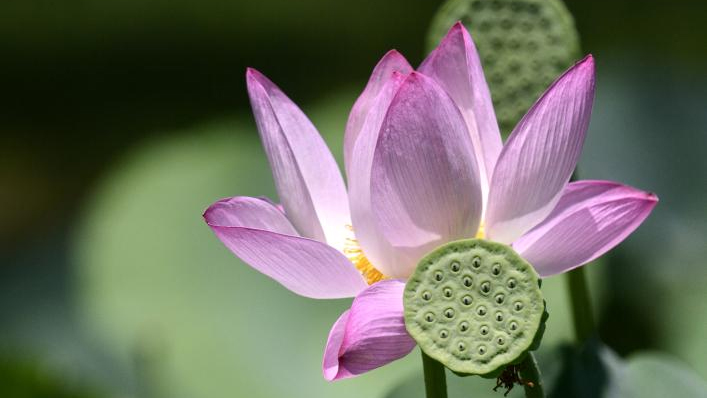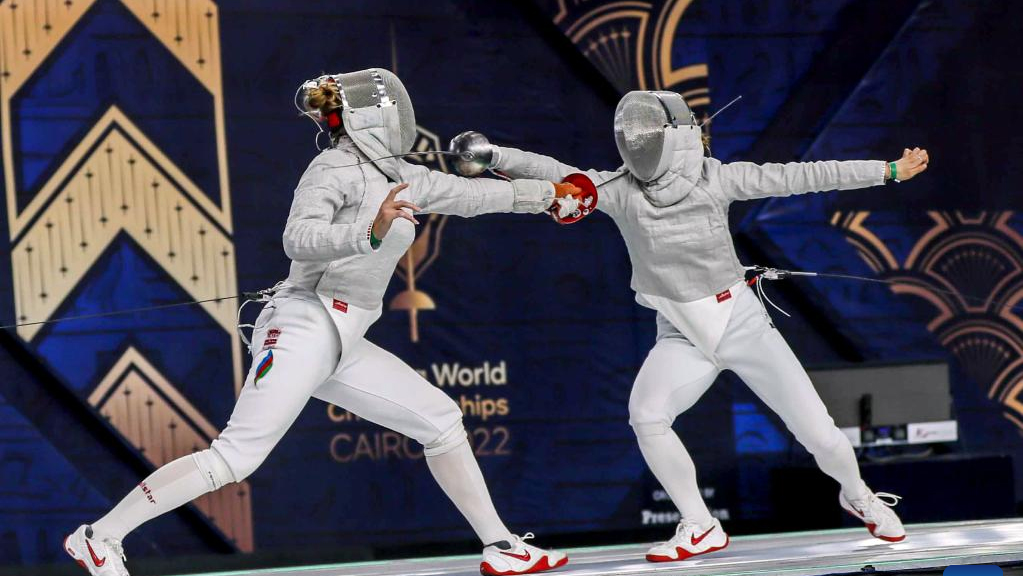Renewing epics of ethnic culture preservation

Actors perform at the Xinjiang Museum in Urumqi, northwest China's Xinjiang Uygur Autonomous Region, May 16, 2022. (Xinhua/Zhou Ye)
BEIJING, July 20 (Xinhua) -- On July 13, epic performer Jangnur Turganbay and his young apprentice performed the Kirgiz ethnic epic "Manas" at the Museum of the Xinjiang Uygur Autonomous Region, welcoming a special guest -- Chinese President Xi Jinping.
Xi, also general secretary of the Communist Party of China Central Committee and chairman of the Central Military Commission, watched their performance during an inspection tour in Xinjiang.
The main plot of "Manas" revolves around the heroic deeds of the eponymous protagonist and his descendants. Consisting of myths, folktales, customs and idioms of the Kirgiz ethnic group, the extensive epic is considered an "encyclopedia" of Kirgiz ethnic culture. It has been passed down orally since as early as the 16th century.
Due to its rich contents, the performance of the epic can take a tremendous amount of time. Impressed by Jangnur Turganbay's performance, Xi asked, "How long can you perform the epic?"
"Over a whole day and night," said Jangnur Turganbay proudly. Now in his 50s, he has 30 years of experience in performing "Manas."
"I can only perform for 60 minutes," said Jangnur Turganbay's apprentice Yvmvtale Etekul modestly. Now a middle school student, he has been learning the epic since he was three.
"That's impressive already!" Xi said, encouraging the 14-year-old.
"Manas" is not the first traditional ethnic epic the Chinese president has turned his attention to. In 2019, during his visit to north China's Inner Mongolia Autonomous Region, Xi appreciated a performance of the "Epic of King Gesar."
Hailed as "the Homeric epics of the East," the historical epic tells the deeds of legendary 11th-century hero King Gesar who fought evil and helped the weak.
When chatting with the performers, Xi emphasized that much attention ought to be paid to the preservation and inheritance of cultures of ethnic minority groups.
Also in 2019, when addressing a gathering to honor national role models for ethnic unity and progress, Xi specifically mentioned "Manas," "Epic of King Gesar" and "Jangar," a heroic epic of the Mongolian ethnic group. The three epics, all designated as national intangible cultural heritages, are viewed as equally important cultural works of ethnic minority groups.
Xi elaborated that inclusiveness is the reason behind the brilliance, expansiveness and profoundness of Chinese culture. Cultures of all ethnic groups have illuminated and inspired each other, and the Chinese culture has been kept fresh and alive through the years. These are the source of our strong cultural confidence today, Xi said.
Over the years, the Chinese president's attention to ethnic culture has been repeatedly manifested in his inspections. Apart from the epics, Xi has also learned about the traditional embroidery of the Miao ethnic group and the long-lasting weaving techniques of the Tibetan carpet. Many such ethnic cultural achievements have been designated as national intangible cultural heritage, which facilitates their inheritance and preservation.
During his trip to Xinjiang, Xi again emphasized that Chinese civilization is extensive and profound, has a long history stretching back to antiquity, and is composed of outstanding cultures of all its ethnic groups.
When Xi asked Jangnur Turganbay about his expectations, the performer said, "I wish to introduce the epic to the whole world."
"It should be," Xi acknowledged, noting the epics are not only possessions of ethnic minority groups, but also valuable treasures in the vault of Chinese culture.
Efforts should be made to better preserve and pass on the intangible cultural heritage, and to carry on the excellent traditional cultures of all ethnic groups, Xi said.
Photos
Related Stories
Copyright © 2022 People's Daily Online. All Rights Reserved.









